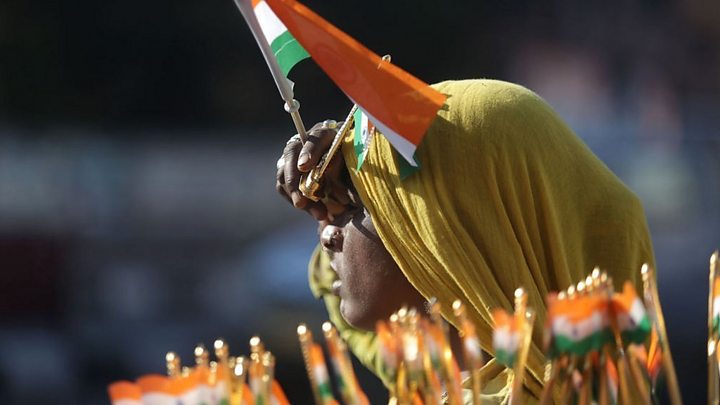
The United Kingdom should be "scared" of Tehran's possible reciprocal measures for the capture of an Iranian supertanker by the British navy in Gibraltar, the semi-official Fars news agency reported an Iranian religious leader as saying.
"I am openly saying that Britain should be scared of Iran's retaliatory measures over the illegal seizure of the Iranian oil tanker," Mohammad Ali Mousavi Jazayeri, a member of the Assembly of Experts, a powerful religious body said on Saturday.
"We have shown that we will never remain silent against bullying ... As we gave a staunch response to the American drone, the appropriate response to this illegal capture [of the tanker] will be given by Iran as well," he said over the seizure of the supertanker in the British overseas territory.
British Royal Marines seized the supertanker Grace 1 on Thursday for trying to transport oil to Syria in violation of European Union sanctions in a move which drew Tehran's fury and could escalate its confrontation with the West.
On Friday, the tanker's crew were being interviewed as witnesses in an effort to establish the nature of the cargo and its ultimate destination, a spokesperson for the British territory said.
The spokesperson said the 28-member crew, who have remained on board the supertanker, were mainly Indians with some Pakistanis and Ukrainians.
Later on Friday, Gibraltar said it had obtained an order extending the detention of the tanker by 14 days because there were grounds to believe it was breaking sanctions by taking oil to Syria.
Saudi seizure of tanker
Iranian officials also say that Saudi Arabia has been holding an Iranian oil tanker in the port of Jeddah since late April after the ship experienced engine failure.
"There was an Iranian oil tanker that was on its way through the Suez Canal, carrying 1.2 billions of crude oil on April 30 off the port city of Jeddah," Al Jazeera's Dorsa Jabbari, reporting from Tehran, said.
"It experienced an engine failure and sent a distress call before being saved by Saudi Arabia with 26 crew members on board," she also said.
She added: "It has been since fixed in the port city, but Saudis are charging Iranians $200,000 a day. Iran wants this vessel back but the cost is very high, around $20m. Saudi Arabia says they will not release the vessel until Iran pays the bill."
Iran downed a United States military drone on June 20 that it said was flying over one of its southern provinces on the Gulf. Washington said the drone was shot down over international waters.
An Iranian Revolutionary Guards commander threatened on Friday to seize a British ship in retaliation for the capture of an Iranian supertanker by Royal Marines.
The ship's seizure comes at a sensitive time as the EU mulls over how to respond to Iran announcing it will go beyond the maximum uranium enrichment level it agreed to in a landmark 2015 nuclear deal.
Tensions have mounted in the wake of Washington's unilateral decision last year to abandon the nuclear deal and hit Iran's crucial oil exports and financial transactions with biting sanctions.
Iran has accused the administration of US President Donald Trump of waging "economic war" against it with a campaign to reduce Iranian oil exports to zero.
https://www.aljazeera.com/news/2019/07/iran-religious-leader-threatens-uk-capture-oil-tanker-190706091738043.html
2019-07-06 10:50:00Z
52780327368995








